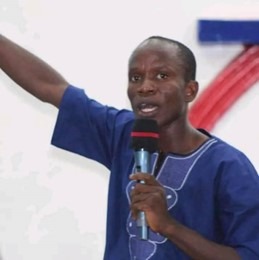A 30-year-old pastor-in-training, Henry Kpalleh, at the Garden of Prayer Church of God in Monrovia, Liberia, is under police investigation for allegedly raping a 12-year-old female student. The alleged assaults reportedly occurred multiple times since September within the church compound on Bushrod Island, specifically in a private room reserved for junior pastors. Medical examinations reveal severe lacerations to the victim’s vagina and anus, consistent with repeated sodomy, necessitating advanced medical care. The victim’s parents, alarmed by their daughter’s deteriorating health, discovered the abuse after persistent questioning. The child disclosed that Kpalleh, also a Dean of Students and second-grade teacher at Frazer Memorial Institute, threatened her with death if she revealed the assaults.
Kpalleh vehemently denies the accusations, characterizing the victim as a “stubborn student.” However, the victim’s account, supported by medical evidence, paints a disturbing picture of systematic abuse. She described how Kpalleh would summon her to his room during school recess and sexually assault her, both vaginally and anally. The child’s fear of Kpalleh’s threats prevented her from reporting the abuse earlier. This case highlights the vulnerability of children in positions of trust and the urgent need for robust child protection mechanisms within religious and educational institutions.
Adding another layer of distress to this already traumatic situation, the victim’s family reports relentless harassment from Kpalleh’s family, friends, and members of the church. They are pressuring the family to forgive Kpalleh and drop the charges, claiming their son’s innocence and even suggesting the victim fabricated the story or had a boyfriend. These attempts to discredit the victim and minimize the severity of the abuse are not only insensitive but also contribute to the child’s ongoing trauma. The family’s intrusive presence and accusatory language are creating a hostile environment for the young survivor, compounding her emotional distress and hindering her healing process.
The victim’s parents have expressed profound disappointment and anger at the Frazer Memorial Institute’s administration for their apparent indifference to the situation. They allege the school, despite being aware of the accusations against Kpalleh, has failed to cooperate with the investigation or offer any support to the victim. This perceived complicity and silence raise serious concerns about the institution’s commitment to child safety and its responsibility to protect its students. The school’s inaction not only jeopardizes the pursuit of justice but also sends a dangerous message that abuse can be tolerated and concealed.
The school’s silence stands in stark contrast to the calls for justice from child rights advocates and community leaders who emphasize the institution’s duty to protect children and cooperate with investigations. The lack of public acknowledgment or any indication of internal investigation further fuels speculation about a potential cover-up to protect the school’s reputation. This incident underscores the need for stronger accountability measures for institutions entrusted with the care of children and the importance of fostering an environment where victims feel safe to report abuse without fear of reprisal or disbelief.
The victim’s family is demanding justice and accountability, not only for their daughter but also to send a clear message that such behavior is unacceptable and will not be tolerated. Their plea resonates with the broader societal need to prioritize child safety, strengthen protective mechanisms, and hold perpetrators accountable for their actions. The case highlights the devastating consequences of abuse, both physical and emotional, and the critical need for supportive systems that empower survivors and promote healing. The long-term impact on the victim will undoubtedly be profound, requiring ongoing support and therapy to address the trauma she has endured. The case also raises concerns about the potential for similar abuse to occur in other institutions where oversight and accountability mechanisms are weak or nonexistent.














